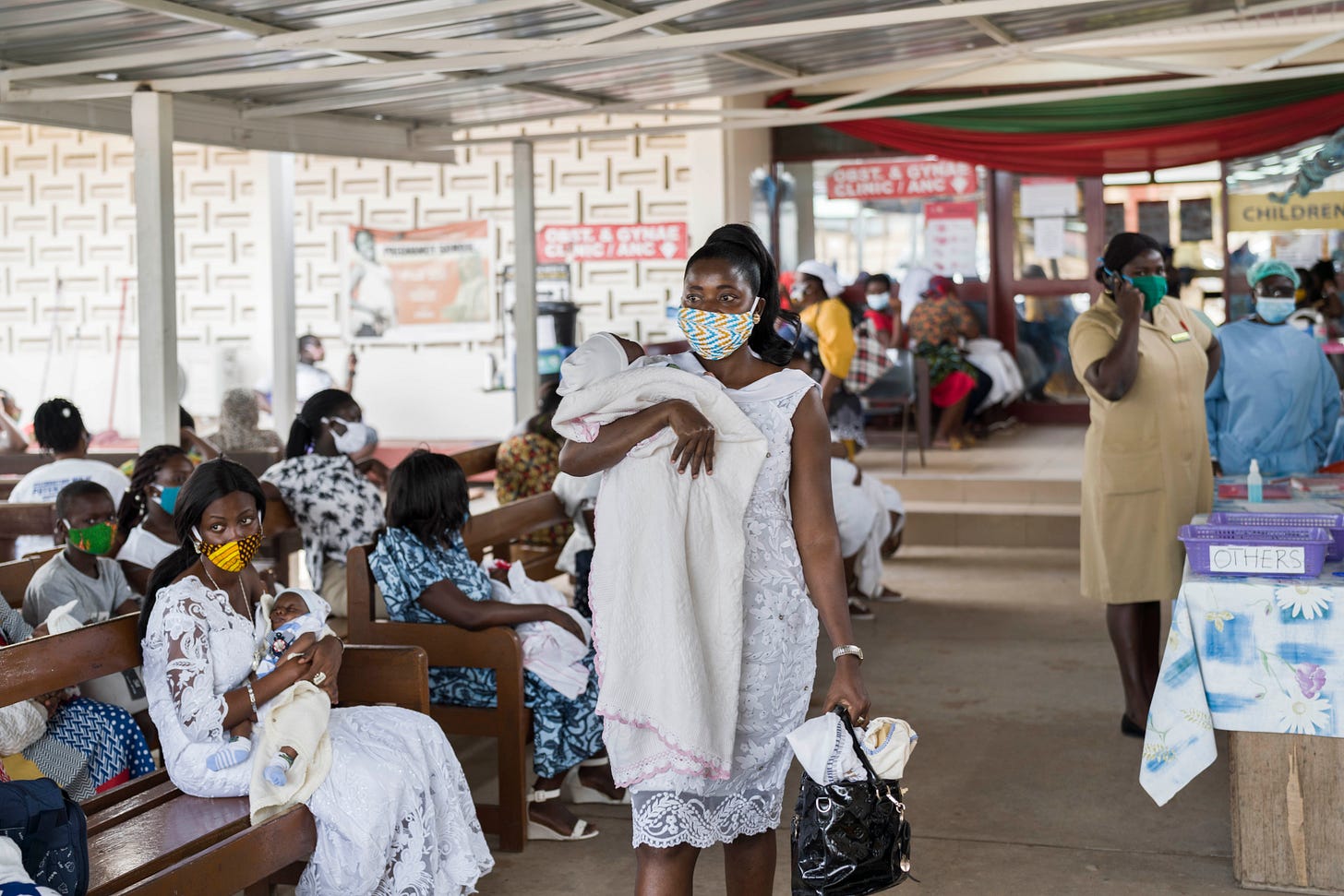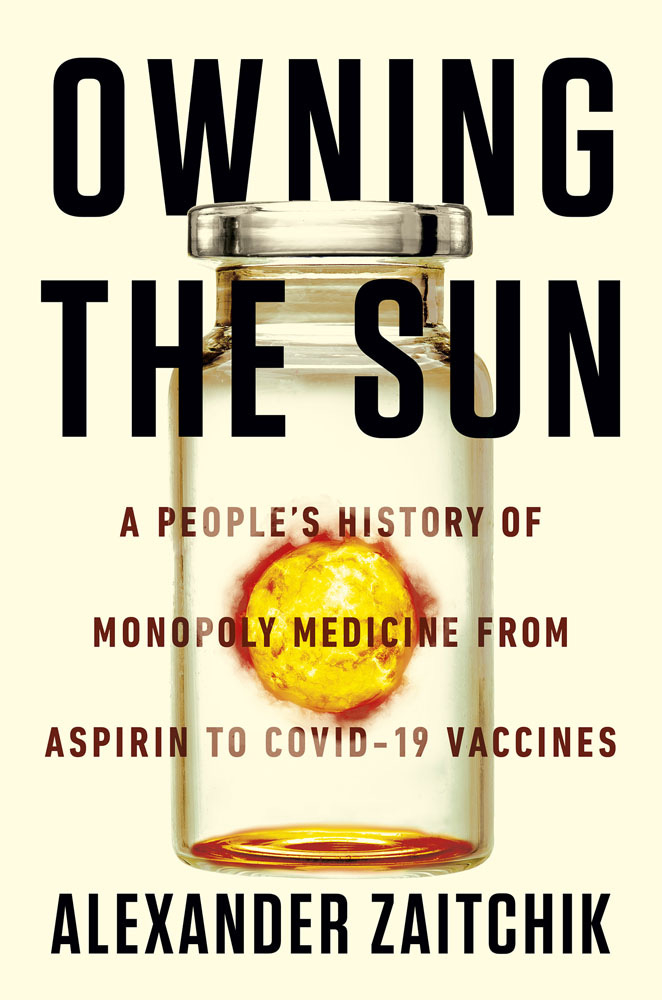Why Universal Health Coverage must be central to Pandemic Prevention, Preparedness, Response and Recovery? [GUEST ESSAY]
Newsletter Edition #40 [Treaty Talks - Featured in GHF]
Hi,
A new Pandemic Accord is often talked about in political terms, as an aspirational instrument, on which hangs many of the unmet goals of global health.
Universal Health Coverage is one of the cornerstones for improving health outcomes for people everywhere, and yet so far there has not been adequate attention to this in the current negotiations in global health. While some believe that codifying obligations on strengthening health systems in a pandemic accord may have a limited impact, others see it differently. UHC could be key in ensuring effective pandemic prevention, preparedness, response and recovery.
In today’s addition, experts from a range of organizations write for us on the importance of UHC in a Pandemic Accord.
As announced earlier, this is a part of the Featured in Geneva Health Files Sponsored Series that enables stakeholders to communicate with our painstakingly-built audience of more than 5,000 readers across 130 countries comprising decision-makers, diplomats, academia, experts, activists and the private sector. It also helps us diversify our revenues. We address sponsored content on a case-by-case basis, with care, caution, responsibility and discretion, in line with our editorial policy. Write to us if you wish to engage with our readership.
If you find our work valuable, become a paying subscriber. Tracking global health policy-making in Geneva is tough and expensive. Help us in raising important questions, and in keeping an ear to the ground. Readers paying for our work helps us meet our costs.
Until later.
Best,
Priti
Feel free to write to us: patnaik.reporting@gmail.com or genevahealthfiles@protonmail.com; Follow us on Twitter: @filesgeneva
I. GUEST ESSAY
Featured in Geneva Health Files: Sponsored Series
Why Universal Health Coverage must be central to Pandemic Prevention, Preparedness, Response and Recovery?
This post has been co-authored by Amref, Gavi – the Vaccine Alliance, NCD Alliance, Save the Children, Sightsavers, Women in Global Health, and the UHC2030 Civil Society Engagement Mechanism, to inform the Intergovernmental Negotiating Body’s negotiations on the WHO convention, agreement or other international instrument on pandemic prevention, preparedness and response (“WHO CA+” or the Pandemic Accord in short).
The COVID-19 pandemic shone a light on long-standing gaps in health systems, with particular impacts to vulnerable communities. The equity and resilience required to address these gaps hinge on making universal health coverage (UHC) a central element of the global health architecture for pandemic prevention, preparedness, response, and recovery (PPR).
As organizations and multi-stakeholder partnerships dedicated to ensuring that everyone, everywhere has access to quality health services - without the risk of financial hardship - we are united in our strong commitment to achieving UHC by working collectively to strengthen health systems. This includes adopting a primary health care (PHC) approach, which is critical to achieve UHC and provides the foundation for effective PPR, in order to foster a world where no one is left behind in future health emergencies.
When the zero draft of the Pandemic Accord was published in February 2023, we welcomed the recognition of UHC as “an essential foundation for effective pandemic prevention, preparedness, response and recovery“ (A/INB/4/3, preambular section, para 28). This contribution was a reflection of critical lessons the world has learned from previous epidemics, such as the West Africa Ebola outbreak of 2014-2016 (WHA69/2016/REC/1).
In June 2023, the Bureau of the Intergovernmental Negotiating Body shared and published the “Bureau’s text” as the new basis for negotiations, in which UHC was reframed as more of an end goal rather than foundation, suggesting a deprioritization from the Zero Draft.
This is a disturbing shift – based on our work and lessons collected over several decades, we are deeply concerned the Bureau’s text overlooks the critical role of strong, equitable and resilient health systems.
Health systems must be able to maintain and sustain equitable access to essential health services even during pandemics (a time when such services are often needed most) as well as identifying and addressing health threats early, providing treatment to those affected and preventing the spread of diseases, thereby strengthening the resilience of communities and their people.
We therefore call on all member states to strengthen and mainstream language across the Pandemic Accord in a way which operationalizes UHC, with PHC and equitable and resilient health systems as a foundation of effective pandemic prevention, preparedness, response and recovery to protect the well-being of everyone, everywhere.

Core elements related to UHC that should be included in relevant provisions under the Pandemic Accord include:
· maintaining access to essential and routine health services to at least pre-pandemic levels and exceeding those where possible;
· sustaining a protected and well-supported health and care workforce, a majority of whom are comprised of women;
· mitigating barriers to accessing needed health services, commodities and information, particularly by ensuring affordability of and non-discrimination in access to countermeasures necessary to prevent the spread of diseases and protect people during pandemics, and which should be free at point of delivery
· integrating PPR planning into primary health care systems (e.g., leveraging disaggregated data from routine primary health care records to enhance surveillance and monitoring, etc.);
· institutionalizing participatory governance arrangements that enable meaningful multistakeholder, whole-of-society engagement, including civil society and communities, which is critical to respond to the needs of communities (especially considering various needs based on gender, ethnicity, and socioeconomic status) and create trust for greater uptake of essential public health functions.
We must seize this opportunity to embed core elements related to UHC in the Pandemic Accord – this cannot be viewed as a recommendation, but as an absolute necessity. Now is not the time to neglect or drop broader commitments to ensure that everyone, everywhere, has access to the health services they need.
Reframing of universal health coverage based on a PHC approach is overdue. UHC is also necessary to achieve and ensure pandemic prevention, preparedness, response and recovery. It may be our best chance to safeguard equity and resilience in future health emergencies while protecting access to essential health services as a fundamental right for all.
In December 2021, an intergovernmental negotiating body (INB) was established by the World Health Assembly (WHA) to draft and negotiate a convention, agreement or other international instrument under the Constitution of the World Health Organization to strengthen pandemic prevention, preparedness and response. Following two rounds of public hearings (in April and September 2022) and four informal, focused consultations ( in September and October 2022), a zero draft of the accord (Zero draft of the WHO CA+ for the consideration of the Intergovernmental Negotiating Body at its fourth meeting WHO convention, agreement or other international instrument on pandemic prevention, preparedness and response, “WHO CA+”) was discussed at INB4, INB5 and INB6 in February, April, June and July 2023. The INB delivered a progress report to the 76th World Health Assembly in 2023 and will submit its outcome for consideration by the 77th World Health Assembly in 2024.
Find more information here on why it is important to integrate UHC in the Pandemic Accord.
Get in touch with the authors via Margot Nauleau, Save the Children <margot.nauleau@savethechildren.org>
II. BOOK CORNER
Owning the Sun: Alexander Zaitchik
"Owning the Sun masterfully explains how Big Pharma methodically gained global control over the largely public-funded 'intellectual property' required to manufacture new therapies (like the COVID-19 vaccines). A riveting must-read for those wanting to understand how this unfolded." —John Abramson, M.D., author of Sickening: How Big Pharma Broke American Health Care and How We Can Repair It
"Part history lesson on intellectual property and part damning critique...Highly informative and deeply troubling reading." —Library Journal
"A brave and timely reminder...A trenchant study of the dangers of turning medical knowledge into private intellectual property." —Kirkus Reviews
"The history of the rise of patented and monopolized medicine is extremely complex, but Zaitchik manages to effectively weave that history together to show just how much institutional science and medicine has changed since the beginning of the twentieth century." — The Progressive
[This is a sponsored advertisement: Get in touch with us if you want to promote books, webinars, job postings. Write to patnaik.reporting@gmail.com.]
III. NEXT WEEK
WTO PUBLIC FORUM 2023 [12-15 September]
WHO: Member State consultation on WHO’s proposal to enhance coordination for equitable access to medical countermeasures against pandemic threats [WHA 74.7(2021)] [11 September]
WHO: Member States consultation on a plan to improve impact measurement for the General Programme of Work [12 September]
WHO: Member State Consultation on the Investment Round [15 September]
IV. WHAT WE ARE READING
Analysis finds that Big Pharma held South Africa to ransom over COVID-19 vaccines: Health Justice Initiative
Experts urge more scrutiny of WHO regional elections after racism scandal: Devex
Negotiating public-health intellectual property licensing agreements to increase access to health technologies: an insider’s story: BMJ Global Health
Decolonization of Global Health Law: Lessons from International Environmental Law: The Journal of Law, Medicine & Ethics, 51 (2023)
Global health is everybody’s business. Help us probe the dynamics where science and politics interface with interests. Support investigative global health journalism.





